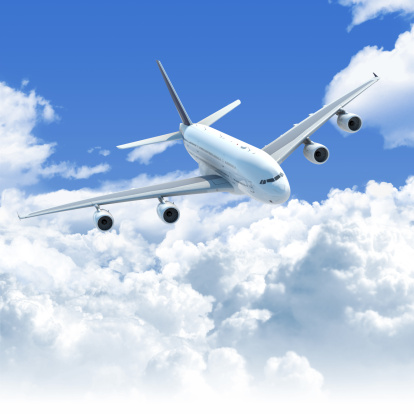Transportation
Did Warren Buffett's Airline Trade Just Hit Turbulence?

Published:
Last Updated:

When Warren Buffett and his portfolio managers take a large stake in a company, it gets a lot of attention. And when Berkshire Hathaway Inc. (NYSE: BRK-A) makes a big industry bet, that garners even more attention. In late 2016 it became known that Buffett’s portfolio managers took stakes in several of the largest airlines in America, and that those stakes were shown to be substantial after looking at the top Buffett stocks as of the end of 2016.
After showing massive profitability in the airline stakes, now that sector bet is taking a breather. Delta Airlines Inc. (NYSE: DAL), which was shown to be a 7.5% stake of some 54.9 million shares also was shown to have a cost basis of $2.299 billion. That stake was worth some $2.702 at the end of 2016, and its value was $2.75 billion as of the close of March 3. Now Delta has presented data at the Raymond James Institutional Investors Conference indicating that the March quarter is looking weak.
While Delta is talking up a durable business model, its management told investors that 2017 is a transition year for the company’s business. They noted that margins were likely to contract as the pace of revenue improvement will lag its cost increases. They further expect that the greatest pressure will be in the March quarter, with a return to margin expansion in the second half of 2017.
As a reminder, Todd Combs and Ted Weschler originally took the airline stakes. Warren Buffett himself then directed for Berkshire Hathaway to purchase shares of Southwest Airlines Co. (NYSE: LUV) as well. The end of year report showed that Southwest Airlines was a 7.0% stake of about 43.2 million shares. That cost basis was $1.757 billion, and it was worth $2.153 billion at year-end.
The other two legacy airline stakes taken were in United Continental Holdings Inc. (NYSE: UAL) and American Airlines Group Inc. (NASDAQ: AAL).
United Continental is an 8.4% stake (26.62 million shares) with a cost basis of $1.477 billion and a year-end value of $1.94 billion, another $460 million or so in profits.
American Airlines was a stake of 45.54 million shares at the end of 2016. If we use the same average profitability for the cost basis, a year-end market value of $2.124 billion would be more than $300 million in profits.
Delta’s investor presentation further showed that it has a balanced capital deployment plan. It will balance its strong cash flow between investing back in the business and on balance sheet de-risking. There also will be a mix of shareholder returns to help drive sustainable results. The capital return was highlighted as $1.4 billion in 2014, rising to $2.6 billion in 2015 and then up to $3.1 billion in 2016. The current target was broken down as 70% of free cash flows to go back to Delta shareholders.
Delta said that system capacity growth is capped at about 1%, and the operating margins of 16.5% in 2016 are projected to be about 15% in 2017 at this time — with a target ahead of 17% to 19%. Unfortunately, the March quarter forecast is for operating margins to be just 10% to 11% on flat revenue per average seat mile in the first quarter.
Delta has each slide as an image rather than text, and that presentation is here.
Delta shares were last seen down 3.2% at $48.44 on Monday, in a 52-week trading range of $32.60 to $52.76.
American Airlines shares were down 4.4% at $44.77, with a 52-week range of $24.85 to $50.64.
United Continental was down 4.3% at $72.33, in a 52-week range of $37.41 to $76.80.
Southwest’s stock price was down the least of the four airlines: 2.2% at $57.54 right before the noon hour on Monday. Southwest’s 52-week range is $35.42 to $59.68.
The big bet on the U.S. airline sector feels like that point where irony meets paradox. Buffett was vocal about having hated airlines for many years (except for the NetJets service of course). Combs and/or Weschler decided that the airlines having fewer competitors (wider moats) on routes and the ability for airlines to add on whatever fees they can come up with is now a good investment.
Buffett previously confirmed that each manager now independently manages more than $10 billion. Buffett also has suggested that they take on outside board seats in some of their investments.
Retirement planning doesn’t have to feel overwhelming. The key is finding expert guidance—and SmartAsset’s simple quiz makes it easier than ever for you to connect with a vetted financial advisor.
Here’s how it works:
Why wait? Start building the retirement you’ve always dreamed of. Click here to get started today!
Thank you for reading! Have some feedback for us?
Contact the 24/7 Wall St. editorial team.